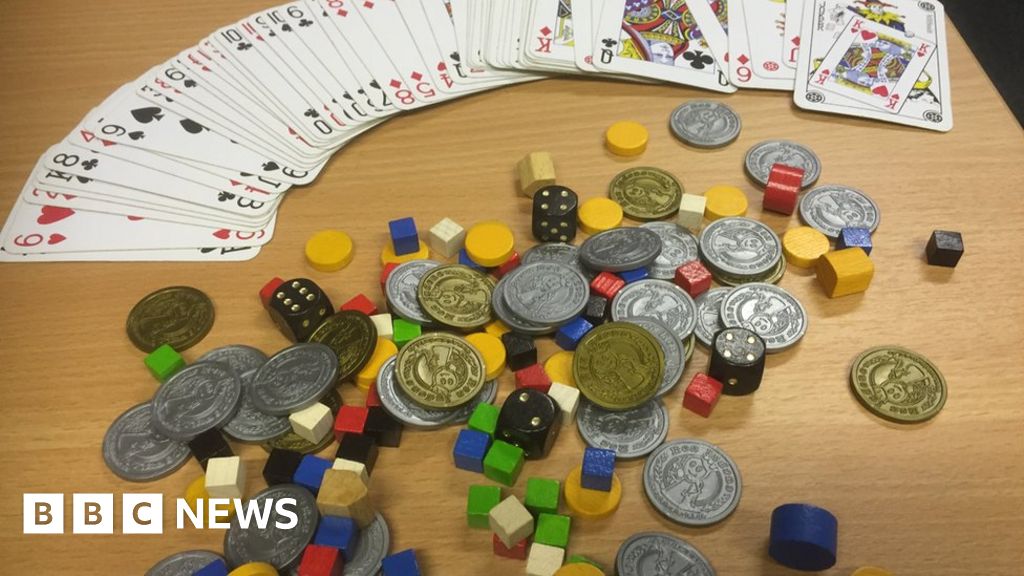Gambling
How board games are getting a new roll of the dice – BBC News

- By Gillian Sharpe
- BBC Scotland
Julia Smith met her husband through online gaming. They played across time zones, with her in Vancouver and him in Scotland. Now that they both live in the same city they have transferred their interests to board games and host a weekly club in Glasgow for enthusiasts.
“I quite like the idea of being able to pick things up and move things and see the person’s face that you’re playing,” she explains. And that is something you do not get when you are playing online.
The games are not really like the familiar ones we all know but centre more around strategy and themes.
Image source, Brian McDonald
Ms Smith says: “It is back to the days where people had no television, just sat around a fire and maybe just listened to the radio, and that’s more or less what we do here.
“We put a record on and sit in front of our board game, have a chat with people and catch up and also get to trounce them at a game if you possibly can.”
From fighting global disease, to space exploration, to going through a breakup – modern board games cover a huge range of human experience.
Enthusiasts meet in houses and cafes all over the country and they have a festival in Glasgow this weekend, now in its second year.
They are hoping to spread word about their hobby which now sees about 3,000 games released each year.
Social aspect
Glasgow Games Festival organiser Nick Pitman says he is “not sure if he should confess” to owning an extensive collection of more than 300 games. He has been an enthusiastic board gamer for a decade.
For him it’s the social aspect of games which is the biggest appeal.
He would like people to understand how games have changed and design has evolved.
Nick says: “Gone are the days of three-hour games where someone’s knocked out after an hour and a half and has to sit around and watch everyone else play on.”
Scotland has a real reputation for computer and video games and the sector is being touted as one of great opportunity.
Some of the people who hope to be part of that are studying at Glasgow Caledonian University.
It is a surprise to some of them though to find that when learning about online games, the very simple components of board games can be a really useful tool.
“We have a board game kit, essentially a bunch of dice, little cubes, cards and other elements that can be used to make board games,” explains Brian McDonald, who as well as being a keen board gamer himself is also a senior lecturer at the university in games software development.
Designing games using these simple physical elements allows students to make prototypes quickly and test out what works and what does not. If they were using computer code it would take much longer.
Steady growth
Mr McDonald explains that there is sometimes a bit of resistance from students.
He says: “When you mention board games they think of those horrible times at Christmas when they’re forced to play these games.”
“It is about exposing the students to the breadth of what board games can offer.
“Eventually they can start seeing that a lot of these systems that are in board games and card games have been replicated into the digital realm, so they can start to understand that in order to be a good games designer, a good games developer, you have to understand how all games work.”
There has been steady growth in sales of board games over the past decade and Scotland has a thriving scene, including in cafes such as Geek Retreat in Glasgow’s city centre.
“Things that used to be considered a bit geeky and a bit out there are suddenly really popular,” says board gaming journalist, Owen Duffy.
He also runs a board games club in Glasgow.
“In Glasgow and across Scotland there are so many groups starting up, there’s different venues hosting gaming nights and gaming events,” Owen says.
“Even if you compare it to a big city like London where I used to work, there’s far more going on in terms of a community that’s grown up around these games in Scotland. I’m not sure why that is but I’m very glad of it.”

